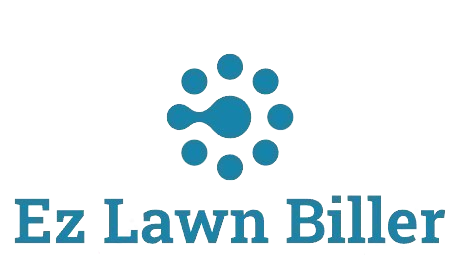Manage Schedules: Best Practices for Lawn Care Pros
As a lawn care professional, managing your schedule effectively is crucial for the success and growth of your business. A well-organized schedule not only ensures that you meet your clients’ needs but also helps you streamline your operations and optimize your time. In this blog post, we will delve into best practices for managing schedules in the lawn care industry. We’ll cover tools, techniques, and strategies to enhance your efficiency while providing excellent service.
Managing schedules can be daunting, especially in a field where client demands fluctuate seasonally. From weather changes to varying service requests, lawn care professionals face unique challenges in maintaining a reliable schedule. By implementing effective scheduling practices, you can reduce stress and ensure that your business operates smoothly.
Throughout this article, we’ll discuss the importance of utilizing technology, setting clear boundaries, prioritizing tasks, and creating effective communication strategies with clients. Let’s dive into these best practices to help elevate your lawn care business.
Utilize Scheduling Software
One of the most significant advancements in managing schedules is the rise of scheduling software. Tools such as Lawn Biller Software offer lawn care professionals a way to streamline their operations. By automating scheduling, invoicing, and client management, these software solutions save time and reduce human error.
Using a lawn service software allows you to visualize your entire schedule. You can set appointments, send reminders to clients, and manage multiple jobs simultaneously without the chaos of traditional paper methods. Statistics show that companies utilizing scheduling software increase their efficiency by up to 30%, allowing them more time to focus on customer service and satisfaction.
For instance, if you operate in a city like Denver, where the demand for lawn care services surges during the spring and summer months, an effective scheduling software can help you manage the influx of requests seamlessly. By having all your appointments in one place, you can quickly adjust to last-minute changes and keep your clients informed.
Establish Clear Boundaries
Setting firm boundaries around your scheduling is essential for preventing burnout and maintaining a high level of service. Clients appreciate knowing when they can expect you, and establishing time frames for your services can help manage their expectations.
For instance, if you are providing lawn care services in cities like Houston, where clients may require regular maintenance, consider implementing a routine schedule for each client. This approach not only gives clients peace of mind but also allows you to plan your days more effectively.
When scheduling, be upfront about your availability. If you only offer services on weekdays, let clients know this during your initial interactions. When clients understand your availability, it fosters a professional relationship grounded in respect and reliability.
Prioritize Tasks and Services
In the lawn care industry, some tasks will take precedence over others based on client urgency, weather conditions, or seasonal demands. Prioritizing your daily tasks can enhance your productivity and ensure that critical jobs are completed on time.
For example, if you know that heavy rain is forecasted for the following day, prioritize any urgent lawn treatments or mowing services for completion before the weather changes. Using a simple task management system can help you categorize jobs by urgency and deadline.
An effective strategy is to create a daily or weekly checklist that outlines your tasks. This not only helps you stay organized but also allows you to track completed jobs. Many lawn service apps, including Lawn Biller Software, offer task management features that can assist you in maintaining focus on your priorities.
Communicate Effectively with Clients
Clear communication is vital in the lawn care business, especially when it comes to scheduling. Keeping your clients informed about their service dates, potential delays, or changes in your schedule is crucial for maintaining trust and satisfaction.
Use communication tools such as emails, text messages, or automated reminders through apps to keep clients updated. For example, if you’re servicing clients in Atlanta, sending a reminder the day before their scheduled service can significantly reduce no-shows and ensure that both parties are aligned.
Additionally, consider asking for feedback after each service. This not only shows clients that you value their input but also helps you improve your services. A simple follow-up message can go a long way in building strong client relationships.
Embrace Flexibility
While it’s essential to have a structured schedule, flexibility is key in the lawn care industry. Weather conditions, emergency requests, and other unforeseen circumstances can disrupt even the best-laid plans.
Being adaptable allows you to respond to client needs quickly. If a client in Los Angeles requests immediate lawn treatment due to an unexpected event, being open to adjusting your schedule can lead to increased customer satisfaction.
Consider creating buffer times within your schedule to accommodate changes. This could mean leaving space in your afternoon for any last-minute appointments or extending working hours during peak seasons. Your ability to adjust will enhance your reputation and set you apart from competitors who may be more rigid in their scheduling.
Automate Recurring Services
For clients who require regular lawn maintenance, automating recurring services can significantly simplify your scheduling process. Using lawn service software like Lawn Biller Software allows you to set up recurring invoices and appointments, ensuring that you never overlook a scheduled service.
With automated reminders and billing, you can concentrate on providing quality service instead of getting bogged down by administrative tasks. This feature is particularly beneficial for clients who need weekly mowing or monthly fertilization treatments.
In cities like Chicago, where seasonal changes greatly affect lawn care needs, automating services helps maintain consistent revenue and workflows. Clients appreciate the reliability of scheduled services, and you benefit from the predictable income that comes with it.
Leverage Technology for Scheduling
Beyond just scheduling software, consider integrating other technological tools to enhance your scheduling efficiency. Mobile apps, GPS tracking, and online payment systems can streamline operations and improve client interactions.
For example, using a lawn company app allows you to manage your schedule on the go. If you’re out in the field and receive a last-minute request, you can quickly check your availability without needing to return to the office.
Moreover, GPS tracking can assist in optimizing your routes. By planning the most efficient travel paths, you can minimize downtime and maximize service time. This approach is particularly effective in sprawling metropolitan areas like New York City, where traffic patterns can significantly impact your schedule.
Keep Track of Performance Metrics
Analyzing performance metrics can provide valuable insights into your scheduling practices. By tracking key performance indicators (KPIs), such as average time spent on jobs and client satisfaction ratings, you can identify areas for improvement and adjust your scheduling accordingly.
For instance, if you notice that certain services take longer than expected, it may indicate the need to adjust how you allocate your time or consider additional training for yourself or your team. Utilizing tools within your lawn service software to generate reports can help you make data-driven decisions that enhance your scheduling efficiency.
Setting benchmarks for yourself and your team can also promote accountability. For example, if you service clients in Miami and your goal is to complete all jobs within a certain timeframe, consistently reviewing your performance can help you achieve this objective.
Incorporate Seasonal Planning
Seasonal planning is crucial for lawn care professionals, as different times of the year bring varying service demands. Preparing your schedule in advance can help you manage peak seasons more effectively and ensure you’re ready for the influx of clients.
Create a seasonal calendar that outlines your service offerings based on client needs throughout the year. In places like Phoenix, where summer can be extremely hot, focus on services that prioritize water conservation and summer lawn care.
Additionally, communicate these seasonal changes to your clients. Sending out newsletters or updates can keep them informed about the best practices for lawn care during different times of the year while reminding them of your services. This proactive approach can enhance client trust and loyalty.
Optimize Your Work Environment
Your work environment plays a significant role in how effectively you manage your schedule. Ensuring that you have the right tools, equipment, and workspace can reduce stress and improve productivity.
Investing in high-quality lawn care equipment can streamline the time it takes to complete jobs. Furthermore, ensuring your office space is organized can help you manage your scheduling processes more efficiently.
Consider creating a dedicated area for scheduling tasks, equipped with all necessary resources. Whether it’s a physical or digital space, having a designated work environment can enhance your focus and productivity.
Review and Adjust Regularly
Lastly, regular reviews of your scheduling practices can lead to continuous improvement. Take the time to assess what strategies are working and which ones need adjustment.
Schedule periodic reviews, whether monthly or quarterly, to evaluate your scheduling system. Consider keeping a journal or log of any challenges you face and successes you achieve. This reflection will provide insights that can help you refine your practices over time.
By remaining flexible and open to change, you can adapt to the evolving needs of your clients and your business. Being proactive in your scheduling practices will allow you to stay ahead of the curve and position your lawn care business for long-term success.
Conclusion
In conclusion, effectively managing schedules is pivotal for lawn care professionals striving for success in a competitive industry. By utilizing scheduling software, establishing boundaries, prioritizing tasks, and maintaining clear communication with clients, you can enhance your productivity and improve client satisfaction.
Additionally, embracing flexibility, automating recurring services, leveraging technology, and continuously reviewing your practices will set you apart as a reliable service provider.
As lawn care needs fluctuate throughout the year, being adaptable and proactive will enable you to capitalize on opportunities and navigate challenges with ease. Remember, a well-managed schedule not only benefits your business but also fosters lasting relationships with your clients.
Start implementing these best practices today and consider using solutions like Lawn Biller Software to streamline your operations. Your clients and your business will thank you for it.




